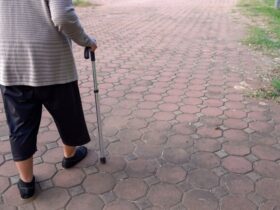You’re trying to get dinner on the table, pack lunches, sign a permission slip, and remember which kid needs what gym shoes. Meanwhile, your phone buzzes. It’s your mom. Or maybe your dad. Or their doctor. Or their pharmacy. And suddenly, your mental load triples.
This is what no one tells you about the sandwich generation. You’re raising kids, yes—but you’re also trying to support the people who raised you. According to Pew Research, nearly half of adults in their 40s and 50s are financially supporting both a parent and a child. It’s love. It’s heavy. And some days, it’s just too much.
The Day You Realize Your Parent Isn’t Fine Anymore
It might be a slow shift or a single moment. You notice the house is messier than usual. They seem forgetful. Their energy is off. Or they’ve had a fall, and no one told you until days later. Suddenly, you’re not just visiting. You’re checking. Managing. Worrying.
And the scariest part? You’re not sure if you’re overreacting or not reacting enough.
How Do You Care for Two Generations at Once?
Short answer: you can’t. Not perfectly. Not without breaking.
You wake up at night wondering if your toddler’s cough is serious and if your parent took their meds. You feel guilt when you’re not present enough with your kids. Then guilt when you can’t help your parents more. No one tells you that love can feel like a tug-of-war.
Caregiving Isn’t a Job. It’s a Constant
You’re tracking appointments, meds, moods. You know the names of all their specialists. You’re researching care options between soccer practice and dinnertime. You’re helping with laundry while mentally checking your grocery list. This isn’t a side role. It’s a second life.
And it’s unpaid, unnoticed, and unspeakably exhausting.
When You’re Too Tired to Be Gentle (And Feel Guilty About It)
You snap at your partner. You forget spirit day. You say the wrong thing to your mom. And then you beat yourself up for not being more patient, more kind, more “together.” You’re not alone. In fact, NPR recently spoke with parents facing similar burnout (juggling caregiving, parenting, and their own emotional limits) and the overwhelming takeaway was clear: no one can do it all, and trying to will break you.
But burnout doesn’t always show up dramatically. Sometimes it just makes you numb. Or short-tempered. Or bone-deep tired. None of that makes you a bad mom or daughter. It makes you human.
What Happens When You Can’t Keep All the Plates Spinning
Spoiler: they fall. Maybe not all at once. Maybe not loudly. But you start to forget things. Your health slips. Your mood flattens. And the version of you everyone counts on feels like she’s fading.
That’s not failure. That’s a signal.
Asking for Help Isn’t Weak. It’s Smart
You weren’t meant to do this alone. Asking for help doesn’t mean you don’t care. It means you care enough to make sure the people you love are supported in ways that are sustainable.
Professional care doesn’t replace you. It reinforces you.
Senior Care That Doesn’t Feel Like Letting Go
There’s this myth that placing a parent in senior care means you’ve abandoned them. That you’ve failed. But here’s the truth: a good senior care community doesn’t take over. It lifts the load. It allows you to return to being a daughter again, not just a caregiver.
Where Families Like Ours Turn for Real Support
You want a place that respects your parent, understands your stress, and supports both. That’s what All Seniors Care is built for. Their residences combine independence with peace of mind. Safety with connection. Structure with dignity. They take care seriously, because they know what’s at stake.
Whether your parent is still mostly independent or needs full-time care, they meet you where you are. And that changes everything.
You’re Not Failing. You’re Just Human
You’re stretched thin. Doing your best. Holding it all together with love and a little leftover energy. And even when you feel like you’re falling short, you’re doing more than most will ever understand.
So ask for help. Use the resources. Let go of the pressure to be superhuman. Your kids need you. Your parents need you. But most of all, you need you.







